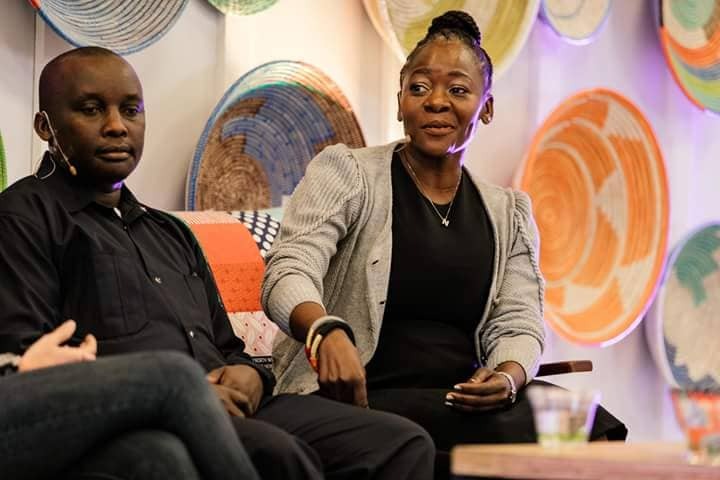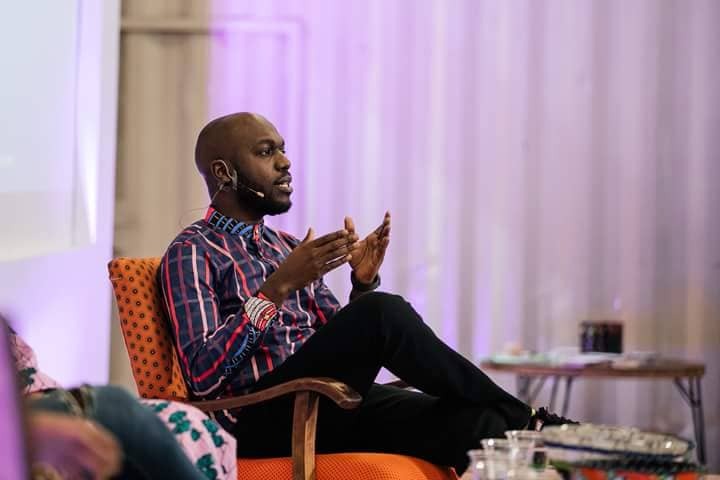Inclusive community tourism solution to Africa's low incomes - experts
Kenya, Rwanda and Ghana had all already abolished entry visas for fellow Africans to facilitate tourism
Sustainable tourism that leads to economic development from the grass roots must be inclusive.
Inclusive tourism works for everyone and ensures that ordinary people and communities are active participants and beneficiaries rather than passive observers, a top continental tourism expert has said.
Sabrina Lehman, the founder and chair of the annual Attractions Africa, the only attractions conference in Africa, was speaking at the two-day Africa Travel Summit going on at Guga S'thebe in Langa, Cape Town South Africa.

Rosette Rugamba from Rwanda (left), Lance Greyling, Director, trading and Investment, City of Cape Town and Kalle Palling, an Estonian MP during a panel discussion.
"You cannot talk about impactful tourism when the economic benefits of tourism are not brought down to small businesses and local residents. This can only be achieved by breaking down the traditional model of tourism from the major few players (who share to spoils) to make it more democratic and beneficial for all. Include the community in the value chain," she said.
The conference is organized by AirBnB in association with South African Tourism. It brought together about 200 innovators in tourism and technology from all over the world to share, discuss and debate how technology can be used to accelerate community-inclusive and sustainable economic growth through tourism on the African continent.
It is part of AirBnB's $1m (sh3.8b) investment to boost community-led tourism in Africa.
"But in order to include underserved community in the tourism value chain, there is a need to facilitate and boost interaction between tourists and our local communities for firsthand experiences. Technology today has fortunately made that a lot easier. New disruptive technologies like AirBnB come allow to cut out many players on the margin and enable the ordinary person to partake of it," she said.
Airbnb is an American technology company that operates an online marketplace and hospitality service. It allows ordinary people to lease or rent short-term lodging including their homes or hostel beds to tourists (local or foreign). Like Uber (an online company that allows ordinary people to use their cars as taxis when it is convenient), the company does not own any real estate.

Larry Madowo, Business Editor, BBC Africa makes a point
Rather, it is a broker that charges a three percent service commission (remuneration) on the host for every booking.
A hosts takes photos of a home or house they want to rent out and uploads it online. Pricing is determined by the host, with recommendations from Airbnb. Hosts can charge different prices for nightly, weekly, and monthly stays and can make adjustments for seasonal pricing.
"Tourism has become a powerful people-driven economic force and when done right, it also has the power to drive belonging through people-to-people connections. This provides a potential for inclusivity of local communities. But technology presents a platform for people who have not benefitted from this booming global industry before to do so," said Chris Lehane, Global Head of Public Policy and Public Affairs for AirBnB.
He said Airbnb passionately believes in the power of healthy tourism - tourism that is local, authentic, diversified, and sustainable - to benefit underserved areas and create opportunities for local communities.
In Uganda, there are about 30,000 registered property owners on AirBnB according to their site many of whom are young people.
Kenyan tourism minister Najib Balal, who was a panelist observed that the AirBnB experience will facilitate relationships between foreign tourists and communities as it penetrates the continent, allowing them (tourists) to get unique cultural experiences and appreciate people more rather than take photos of them (locals) from their tourists vans like they (locals) were zoo animals.
However, for the community-based model to work, he argued, there was need to boost domestic and intra-continental tourism numbers, which, unlike foreign tourism which is seasonal, where more dependable.
He noticed that restrictive visa regimes and an under developed and consequently expensive aviation industry, have made it hard for that to happen.
He noted that Kenya, Rwanda and Ghana had all already abolished entry visas for fellow Africans to facilitate tourism.

Lehane dispelled fears that AirBnB would collapse the hotel industry saying they only offered unique experiences to a certain class of travelers and giving examples of markets like the USA where they have been largely successful.
Rossette Rugamba, the managing director, Songa Africa, a tourism company in Rwanda and former boss, Rwanda Tourism Board, said for community-based tourism to succeed on technology platforms, governments in Africa need to commit to put in place a digital infrastructure, handle regulation, funding and create a secure environment.
However, Sebastian Molineus, the Director, Finance and Markets Practice, World Bank Group, decried he low internet connectivity in Africa which would make innovations like AirBnB a challenge to inclusive tourism.
While Africa accounts for 15% of the world's population, it is estimated that only 6.2% of the world's internet subscribers are Africans. Earlier statistics show that about 13.5% of the African population has access to the Internet.
Mich Atagana, Director, Google's communications and public affairs director for Southern Africa said besides low and slow internet connectivity, many people, especially women, lacked the digital skills to navigate digital platforms even when they own devices.
|